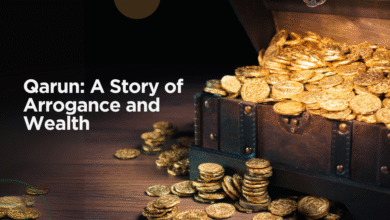Work or Purchase in Places that Sell Alcohol?
In Islamic jurisprudence, working or buying food from a place that sells alcohol (khamr) involves several dimensions that must be analyzed thoroughly. The opinions of scholars from the four major schools of thought within Ahlus Sunnah wal Jama’ah—Hanafi, Maliki, Shafi’i, and Hanbali—help clarify these perspectives. This article will discuss these issues in detail, based on jurisprudential perspectives, evidence from the Qur’an and Sunnah, as well as the principles of Islamic law.
1. Evidence of the Prohibition of Khamr in the Qur’an and Hadith
Khamr is prohibited in Islam based on clear evidence, both from the Qur’an and the hadiths of the Prophet Muhammad (peace be upon him):
Qur’anic Evidence:
“يَا أَيُّهَا الَّذِينَ آمَنُوا إِنَّمَا الْخَمْرُ وَالْمَيْسِرُ وَالْأَنْصَابُ وَالْأَزْلَامُ رِجْسٌ مِنْ عَمَلِ الشَّيْطَانِ فَاجْتَنِبُوهُ لَعَلَّكُمْ تُفْلِحُونَ”
“O you who have believed, indeed, intoxicants, gambling, [sacrificing on] stone alters [to other than Allah], and divining arrows are but defilement from the work of Satan, so avoid it that you may be successful.” (Qur’an, Al-Ma’idah: 90)
Hadith Evidence: The Prophet Muhammad (peace be upon him) said:
“لَعَنَ اللَّهُ الْخَمْرَ وَشَارِبَهَا وَسَاقِيَهَا وَبَائِعَهَا وَمُبْتَاعَهَا وَعَاصِرَهَا وَمُعْتَصِرَهَا وَحَامِلَهَا وَالْمَحْمُولَةَ إِلَيْهِ”
“Allah has cursed alcohol, its drinker, its server, its seller, its buyer, the one who squeezes (grapes, etc. for it), the one for whom it is squeezed, its carrier, and the one to whom it is carried.” (Reported by Abu Dawud no. 3674 and Ibn Majah no. 3381)
This evidence shows that not only is consuming khamr prohibited, but all forms of transactions and involvement with khamr are also forbidden.
2. Ruling on Purchasing Food from a Place that Sells Alcohol
Hanafi School: In the Hanafi school, engaging in transactions that support the sale of alcohol is considered haram because it falls under the category of ta’awun ‘ala al-ithm (assisting in sin). They refer to the following principle:
“كُلُّ مَا أَدَّى إِلَى الْحَرَامِ فَهُوَ حَرَامٌ”
“Everything that leads to something haram is itself haram.”This opinion is found in Al-Hidayah by Al-Marghinani, where it is stated that anyone who indirectly supports a forbidden transaction, such as buying from a place that sells alcohol, falls into this category. However, in situations of necessity, Hanafi scholars allow it with the condition that it is temporary.
Maliki School: Maliki scholars permit buying halal food from a place that sells alcohol as long as the transaction does not directly support the sale of alcohol. This is mentioned in Al-Mudawwanah Al-Kubra from Imam Sahnun riwayah:
“فَإِذَا لَمْ يَكُنْ فِيهِ تَعَاوُنٌ عَلَى الْحَرَامِ، فَلَا بَأْسَ بِهِ”
“If there is no element of assisting in the forbidden, then there is no harm in it.”Nevertheless, they still consider it makruh (disliked) because it is better to avoid places that are doubtful and to maintain one’s honor.
Shafi’i School: In the Shafi’i school, this opinion can be found in Al-Majmu’ by Imam Nawawi. Imam Nawawi explains that if someone buys halal items from a place that also sells alcohol, it does not automatically become haram, provided there is no direct support for the sale of alcohol:
“وَلَا تَكُونُ الشُّبْهَةُ إِلَّا إِذَا اشْتَبَهَ الْحَرَامُ بِالْحَلَالِ، فَإِذَا وُجِدَ الْحَلَالُ بِلَا شُبْهَةٍ لَمْ يَكُنْ حَرَامًا”
“A matter of doubt exists only when the haram is mixed with the halal. If the halal exists without doubt, then it is not haram.”
Hanbali School: In the Hanbali school, this perspective is elaborated in Al-Mughni by Ibn Qudamah, which states that one should avoid all forms of involvement with places that sell alcohol:
“مَنْ تَعَامَلَ مَعَ بَائِعِ الْخَمْرِ فَقَدْ دَخَلَ فِي بَابِ الْمُعَاوَنَةِ عَلَى الْإِثْمِ، فَيَجِبُ الِاحْتِرَازُ مِنْهُ”
“Whoever deals with a seller of alcohol has entered into the realm of assisting in sin, so it is necessary to avoid it.”The principle of sadd al-dzari’ah (blocking the means to evil) is highly esteemed in this school, which requires one to avoid all forms of cooperation with activities involving the haram.
Also read:Witr Prayer: Its Importance,Urgency and Virtue
3. Ruling on Working in a Restaurant that Sells Alcohol
Hanafi School: In Al-Hidayah by Al-Marghinani, it is stated that any work directly associated with the sale of alcohol is haram:
“وَكُلُّ أُجْرَةٍ عَلَى عَمَلٍ مُحَرَّمٍ فَهُوَ حَرَامٌ، كَالْأُجْرَةِ عَلَى حَمْلِ الْخَمْرِ”
“Any wage earned from unlawful work is haram, like a wage for carrying alcohol.”This shows that working in a restaurant that sells alcohol, even if not directly involved, still involves earnings mixed with what is haram.
Maliki School: In Al-Mudawwanah by Imam Sahnun, it is mentioned that working in a place that sells alcohol is makruh if one is not directly involved in its sale:
“لَا بَأْسَ بِالْعَمَلِ فِي مَكَانٍ يَبِيعُ الْخَمْرَ إِذَا لَمْ يَكُنْ الْعَامِلُ مُشَارِكًا فِي بَيْعِهَا”
“There is no harm in working in a place that sells alcohol if the worker is not involved in its sale.”However, it is still recommended to avoid such work to ensure the purity of one’s earnings.
Shafi’i School: The Shafi’i perspective is also found in Al-Majmu’ by Imam Nawawi, where it is stated that:
“وَكُلُّ مَا تَعَلَّقَ بِالْحَرَامِ بِنَفْسِهِ فَهُوَ حَرَامٌ، وَالْأَحْوَطُ تَرْكُهُ”
“Everything directly related to the haram is haram, and it is safer to avoid it.”Although some flexibility may be provided in cases of necessity, it remains better to avoid work that involves haram elements.
Hanbali School: In the Hanbali school, as detailed in Al-Mughni by Ibn Qudamah, there is strong emphasis on avoiding any kind of work involving transactions with prohibited goods like alcohol. Ibn Qudamah emphasizes that:
“لَا يَحِلُّ لِلْمُسْلِمِ أَنْ يَكُونَ عَامِلًا فِي مَكَانٍ يُبَاعُ فِيهِ الْمُحَرَّمَاتُ، فَإِنَّ ذَلِكَ تَعَاوُنٌ عَلَى الْإِثْمِ وَالْعُدْوَانِ”
“It is not permissible for a Muslim to work in a place where forbidden items are sold, as it constitutes assisting in sin and aggression.”This is based on the principle of sadd al-dzari’ah (blocking the means to evil), which is strongly upheld by Hanbali scholars.
They believe that any involvement in a business that sells alcohol, even if not directly related to the sale, still contributes to supporting the continuity of such a business. Therefore, it is emphasized that one should seek a source of income that is free from all forbidden elements, and working in a place that sells alcohol is deemed haram unless in cases of dire necessity where no other option exists for survival.
Also read:The Prohibition of Extravagant Life in Islam
4. Principle of Maqasid al-Shari’ah and Social Impact
The principle of maqasid al-shari’ah (objectives of Islamic law) focuses on protecting five essential elements: religion, life, intellect, lineage, and wealth. The prohibition of alcohol in Islam is aimed at safeguarding human intellect, which is one of the primary goals of the shari’ah. Alcohol is known to impair the mind and can lead to various forms of social and moral corruption.
In this context, working or purchasing from a place that sells alcohol is considered contrary to these goals, as it may indirectly support the spread of alcohol in society. Therefore, Islamic jurisprudence relies on the principle:
“مَا أَدَّى إِلَى الْحَرَامِ فَهُوَ حَرَامٌ”
“Anything that leads to what is haram is also haram.”
This principle is widely adopted by scholars across all schools of thought as a basis for prohibiting any involvement in businesses that sell alcohol, whether directly or indirectly.
Also read:Prophet Muhammad ﷺ as a Role Model of Character Education

Conclusion
After examining the perspectives of the four schools of thought, we can summarize that:
- Purchasing Food from a Place that Sells Alcohol:
- It is permitted according to the Maliki and Shafi’i schools if there is no direct support for the sale of alcohol, but they consider it better to avoid such places to preserve dignity and avoid doubtful matters.
- The Hanafi and Hanbali schools are stricter in their prohibition if there is any element of support or benefit derived from the sale of alcohol, except in cases of necessity.
- Working in a Place that Sells Alcohol:
- The Hanbali school is very strict in prohibiting working in places involved in the sale of alcohol due to the principle of sadd al-dzari’ah.
- The Hanafi and Maliki schools tend to permit it under conditions where no other options exist (necessity), but they still advise seeking alternative employment.
- The Shafi’i school provides some leniency if the individual is not directly involved in the sale of alcohol, but they also prioritize caution in finding better opportunities.
- Guidance for Muslims: Every Muslim is encouraged to distance themselves from any association with places that sell alcohol to maintain the purity of their income and to avoid matters that could lead to suspicion or doubt in religious matters. In situations of necessity, leniency may be granted, but it remains preferable to seek better alternatives as soon as possible.
These views are based on a deep understanding of the texts of the Qur’an and the Sunnah, as well as the jurisprudential approaches of each school in seeking to fulfill the objectives of Islamic law.
References:
Ibn Majah, Muhammad ibn Yazid. (n.d.). Sunan Ibn Majah. Beirut: Dar al-Kutub al-‘Ilmiyyah.
Al-Qur’an al-Karim. (n.d.). Surah Al-Ma’idah [5:90]. Madinah: Mujamma’ Al-Malik Fahd Li-Tibaa’at Al-Mushaf Al-Sharif.
Abu Dawud, Sulaiman ibn al-Ash’ath. (n.d.). Sunan Abu Dawud. Beirut: Dar al-Kutub al-‘Ilmiyyah.
Al-Marghinani, Burhan al-Din. (n.d.). Al-Hidayah fi Sharh Bidayat al-Mubtadi. Beirut: Dar al-Ma’arif.
Al-Qudamah, Ibn. (n.d.). Al-Mughni. Beirut: Dar al-Kutub al-‘Ilmiyyah.
Al-Nawawi, Yahya ibn Sharaf. (n.d.). Al-Majmu’ Sharh al-Muhadhdhab. Beirut: Dar al-Fikr.
Sahnun, ‘Abd al-Salam ibn Sa’id. (n.d.). Al-Mudawwanah al-Kubra. Beirut: Dar al-Kutub al-‘Ilmiyyah.
Muslim, Ibn al-Hajjaj. (n.d.). Sahih Muslim. Beirut: Dar al-Kutub al-‘Ilmiyyah.







